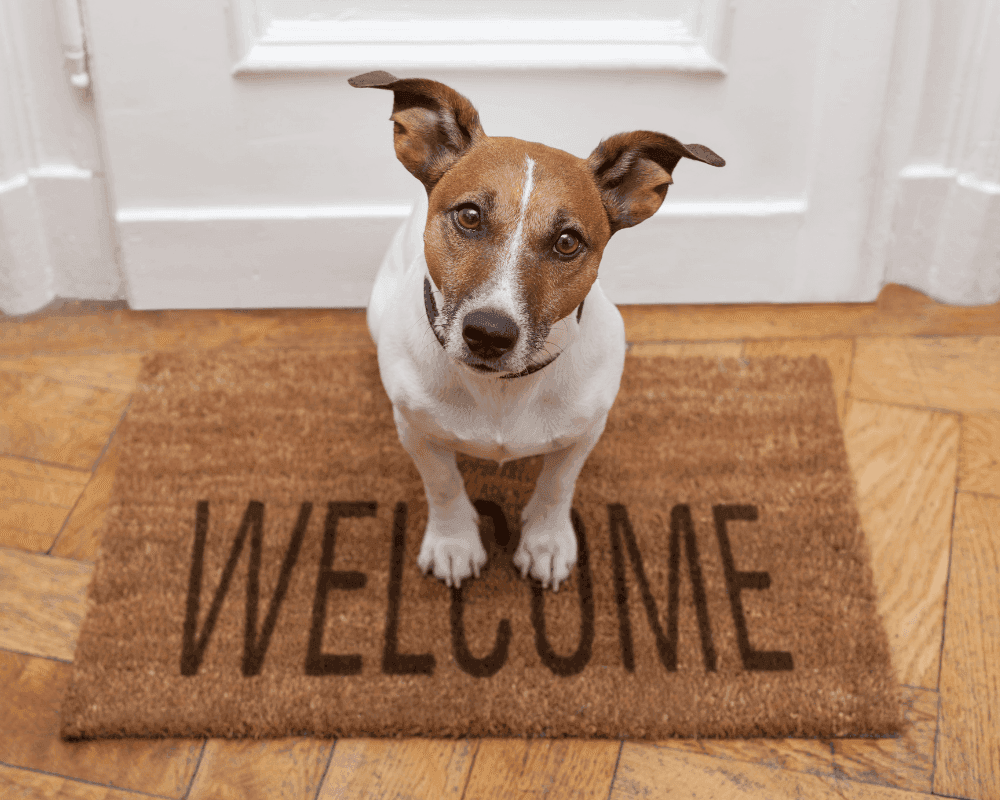Home Of Fair Facts & Tips
Your Beginners Guide to Buying Property
Learn about the property buying process, from saving a deposit to securing your dream home. Get expert tips on buying your first home and navigating the market.

Buying a home is a huge milestone in life, and for many, it can seem like a daunting task. If you're in Australia and thinking about buying your first home, don't stress—this guide breaks down the entire process, step by step. From saving up a deposit to getting expert advice and finalising the deal, here’s everything you need to know about how to buy a house.
Stashing Your Cash: Start Saving for a Deposit
One of the first steps in buying your first home is saving for a deposit. The amount you need largely depends on the property price, but typically, lenders require a deposit of around 20% to avoid paying Lenders Mortgage Insurance (LMI). So, how much do you need for a house deposit? For example, if you're buying a house worth $600,000, you'd need at least $120,000 saved up for the deposit.
If you’re wondering, “how much deposit do I need for a home loan?” the minimum can be as low as 5% of the property value, but the catch is that you’ll need to pay LMI, which protects the lender in case you default on the loan.
Tips to Save Faster:
- Set up automatic transfers into a high-interest savings account.
- Consider the First Home Super Saver Scheme (FHSSS), which lets you use superannuation contributions to save faster.
- Budget carefully and avoid unnecessary expenses to boost your savings.
Crunch Your Numbers: Finding Your Budget
After saving for a deposit, the next question is, "how do I buy a house within my budget?" Knowing how much you can afford is critical. Use online calculators to figure out your borrowing capacity based on your income, expenses, and savings.
Remember to include ongoing costs like council rates, utilities, and insurance when calculating your budget. These can significantly impact how much you can afford when buying your first home. Also, keep in mind that interest rates fluctuate, and while you may qualify for a larger loan now, higher future repayments could strain your budget. This is why you should always be conservative when estimating how much deposit you need for a home loan.
Rounding Up Your Team: Get Help From the Experts
Buying a house can be complicated, so it’s best to have an expert team on your side.
Get Help From a Mortgage Broker
A mortgage broker can help you navigate the different home loan products available and find one that suits your needs. They work with multiple lenders, saving you the hassle of comparing all the options yourself.
Hire a Real Estate Agent
A local real estate agent will help you find properties that match your preferences and budget. They also offer valuable insights into the market, whether you’re buying your first house or looking for your second home.
Consult a Financial Advisor
If you’re not sure how buying your first home will impact your overall financial health, a financial advisor can guide you through the process and ensure you’re making the best financial decisions.
Spot Check Your Score: Reviewing Your Credit Report
Before applying for a home loan, it’s crucial to check your credit score. If you're asking, "how do I purchase a house with a bad credit score?"—well, it will be tougher, but not impossible. In Australia, your credit score impacts how much lenders are willing to loan you and at what interest rates. Request a free credit report from agencies like Equifax or Experian to review your score and address any inaccuracies. This is a key step when planning how to purchase a home or a house.
Green Light Go: Get Pre-Approval Before Your Search
Now that you’ve got your deposit and reviewed your credit score, it’s time to get pre-approved for a home loan. Pre-approval is a conditional approval from a lender that gives you a clear idea of how much you can borrow. It also makes you a more attractive buyer since sellers know you’re serious and have the funds available.
Having pre-approval in place answers the all-important question, "how can I buy a house?" by giving you the green light to start searching.
Let Craggle's AI take the effort out of finding the right loan that best suits your needs. Simply answer some questions about you and what's important and let our AI shift through thousands of loans from over 80 lenders and provide you a list of tailored loan options that have the best chance for success. Chat with Craggle AI today!
Handouts and Help: Government Grants and Schemes
In Australia, first-home buyers can benefit from a range of government grants and schemes that can make the process more affordable.
- First Home Owner Grant (FHOG): This is a one-off payment for eligible first-home buyers who are buying or building a new home.
- Stamp Duty Concessions: Many states offer reduced or even waived stamp duty fees for first-home buyers, depending on the property’s price and your eligibility.
If you’re wondering, “how much is a home loan deposit, and will any grants help me?”—these schemes can reduce the overall amount you need to save.
Start the Hunt: Searching for Your Property
Now comes the fun part—actually looking for a home! But before you rush off, consider these key questions to narrow down your search:
Research Areas and Suburbs
Decide on the area where you want to live. This could be based on proximity to work, good schools, or future growth potential. Look into suburb trends and house prices to find a good deal.
House or Apartment?
How do you decide between a house or an apartment? This choice depends on your budget and lifestyle. Apartments tend to be cheaper but come with body corporate fees, whereas houses offer more space and freedom.
Build or Buy?
Another big decision is whether to buy an existing home or build one. Building can offer you more customisation, but it often takes longer and could involve more unknowns, such as budget blowouts.
Inspect Before You Invest: Property Inspections
Before making an offer on a home, always arrange for a thorough building and pest inspection. This can save you from costly surprises down the line. You don’t want to find out the roof is about to collapse after you’ve signed the contract!
What to Check For:
- Structural integrity
- Plumbing and electrical systems
- Termite or pest damage
Time to Make Your Move: Making an Offer
Once you’ve found your ideal property and completed the inspections, it's time to make an offer. The process of buying your first house can be competitive, so aim to offer a price that's both appealing to the seller and fits your budget.
Negotiation Tips:
- Use comparable sales data to justify your offer.
- Be prepared to walk away if the deal doesn’t suit your financial plan.
Signed, Sealed, Delivered: Closing the Deal
You’ve done it! Once your offer is accepted, it’s time to close the deal. Work with a conveyancer or solicitor to ensure all the legal requirements are met. They'll handle the nitty-gritty details, like transferring ownership and ensuring any outstanding fees are paid.
Frequently Asked Questions
How much deposit do I need for a home loan?
Typically, you'll need at least 20% of the property value to avoid LMI, but some lenders accept a 5-10% deposit.
How do I buy a house if my credit score is low?
It’s still possible to get a loan with a lower credit score, but expect higher interest rates and stricter conditions. Work with a mortgage broker to explore your options.
Can I get government grants when buying my first home in Australia?
Yes, the First Home Owner Grant and stamp duty concessions are available for eligible buyers, reducing the financial burden.
Should I buy a house or an apartment?
It depends on your lifestyle and budget. Apartments are generally cheaper but come with fees, while houses offer more space and privacy.
What inspections should I do before buying a house?
Organise building and pest inspections to uncover any structural or pest issues before making a purchase.
Is pre-approval necessary before house hunting?
Pre-approval gives you a clear idea of your budget and makes you a more attractive buyer in the eyes of sellers.
By following these steps, you'll have a clear understanding of how to buy a house in Australia, making the entire process smoother and more manageable. From saving your deposit to making an offer, the journey to owning your first home is achievable with the right guidance.
_Disclaimer: The opinions expressed in this article are strictly for general informational and entertainment purposes only and should not be taken as financial advice or recommendations._
Written By

The Craggle Team
